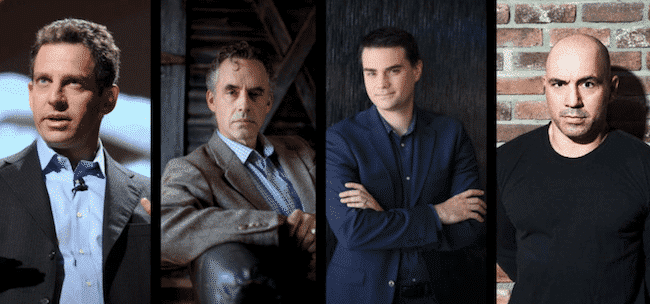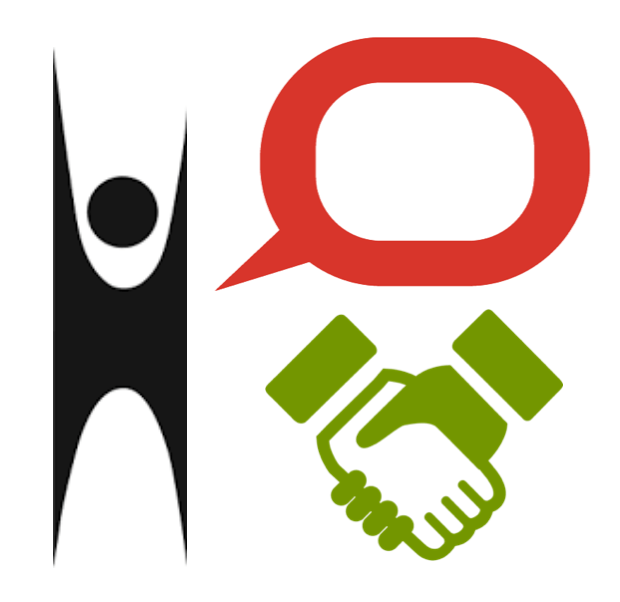Defining the Values of the Intellectual Dark Web

The gravity around the Intellectual Dark Web (IDW) continues to build, with the New York Times doing a piece > on it recently, and many other publications coming out to attack its members as either saviors or villains.
The term was coined by Eric Weinstein on Sam’s podcast.
In no particular order, the top echelon of members include Sam Harris, Eric Weinstein, Joe Rogan, Ben Shapiro, and Jordan Peterson, but the exact membership is neither clearly defined nor restricted.
I’ve listened extensively to the work of all these core members—with the exception of the conservative Ben Shapiro who I’ve only watched as a guest with Sam Harris—and in my view the unifying characteristic was the willingness to honestly discuss controversial topics in Good Faith™. The New York Times piece had a different take, saying it was about going against your own in-group.
Good Faith™ here means assuming your discussion partner fundamentally has good intentions.
There is no direct route into the Intellectual Dark Web. But the quickest path is to demonstrate that you aren’t afraid to confront your own tribe.
The New York Times Piece >That doesn’t quite fit for me, because I don’t see people like Ben Shapiro or Dave Rubin angering their fans with their rhetoric. I see them saying exactly what their fans already agree with, but perhaps I’m wrong and they are being criticized for being too friendly with liberal types like Sam and Eric.

I’d almost characterize the IDW as Radical Centrists >—which alloys ideas from both liberals and conservatives into a kind, practical, and unconventional middle.
This is what separates people like Rubin and Shapiro.
If we were to take the top issues that define one as a liberal or conservative, such as abortion, healthcare, drug laws, gun control, climate change, LGBT rights, dislike of Trump, etc.—I’m pretty sure Sam Harris, Eric Weinstein, Joe Rogan, Steven Pinker, and even Jordan Peterson would score extremely liberal (as would I).
Even Jordan Peterson feels to me like a disgruntled progressive that’s upset the left won’t harvest good ideas from tradition.
It’s perplexing to me that people like Sam Harris, Eric Weinstein, Joe Rogan, and Steven Pinker are commonly called out as right-wingers when they extremely liberal by most standards.
The dangers of undefined membership
To me the IDW becomes troubling when the extreme right starts using it as a platform for racism, fascism, and nationalism.
"We’re just having honest conversation", they’ll say. "We’re not racist! We’re part of the IDW", they’ll say. That makes it difficult to know what the group truly stands for—especially when there are no official membership boundaries.
To a liberal outside this IDW conversation, it’s to see the difference between someone who says that we’re going to have to look hard at the immigration topic in Western Europe and the United States—for various liberal reasons—and someone who says that they believe Jews or Muslims are the problem, and the world would be better off if white people were in charge.
The second position does not represent openness, or honesty, or arguing in good faith—that’s racism. Full stop. Same with the white separatists, ethno-nationalists, and all their various incarnations.
There’s a difference between wanting to have a good-faith conversation about a controversial topic in order to further humanist ideals, and wanting to use a guise of openness to spread racism, sexism, and nationalism.
Defining values

This is why I think if the IDW wants to survive—and not be hijacked by extremists on the right—it needs a set of values. I’d propose something like the following.
The pursuit of a humanist ideal that emphasizes the well-being of all humans, individually and collectively, and that prefers critical thinking and evidence over dogma or superstition.
The belief that Good Faith conversation—including on sensitive or controversial topics—is critical to making progress towards #1.
Some may balk at the humanist and "well-being" pieces, or even the "all humans" part. Perhaps they’ll say it sounds too liberal. Good. That sounds to me like a great way to scare away the racists, sexists, and xenophobes.
I have a few conservative friends and most would agree with these two tenets.
These tenets allow for us to harvest truth and beauty and utility from religious traditions, but to also criticize such traditions where they are out of line with the core values.
These tenets allow us to talk about race, gender, class, and culture—openly, and without fear—but also to reject people who conjure and wield hatred around these topics.
And most importantly, these tenets allow us to unify good people who happen to call themselves, for whatever reason, conservatives, liberals, or libertarians.
If we can unify kind and thoughtful people, who genuinely want to make the world better for everyone, and who believe strongly that the way to do that is by talking to each other, then this IDW might be just what we need to survive 2020.
If so, I’m in.
Notes
Mar 31, 2019 — A reader corrected me that Dave Rubin is actually much more like Sam and Eric in that he has always been liberal, and isn’t a conservative like Ben Shapiro.